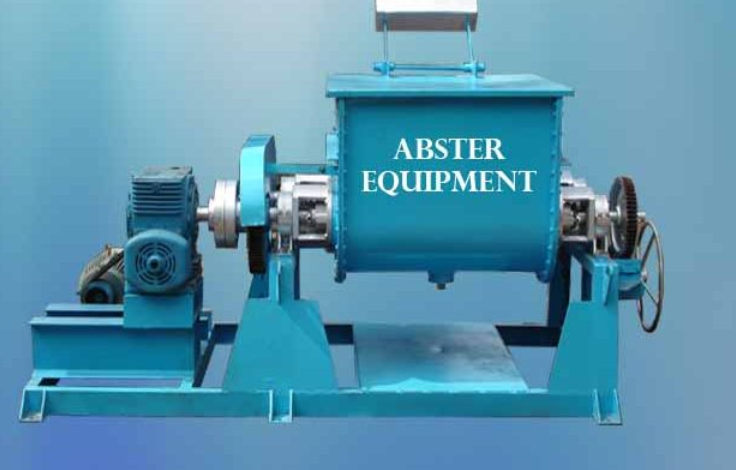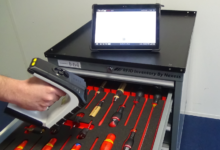Top Benefits of Using Sigma Mixers in Manufacturing

In modern manufacturing, achieving consistent quality and efficiency in mixing processes is essential. From food production to pharmaceuticals and chemical industries, the demand for reliable, high-performance mixing equipment has grown rapidly. Among the many types of industrial mixers available, sigma mixers stand out as a robust and efficient solution for handling high-viscosity materials, pastes, and dough-like substances.
This article explores what sigma mixers are, how they work, and why they’ve become indispensable in today’s manufacturing environments.
What Is a Sigma Mixer?
A sigma mixer is a type of heavy-duty industrial mixer designed to handle thick, viscous, or sticky materials that are difficult to process using standard agitators. Its unique design features two horizontally positioned blades shaped like the Greek letter “Σ” (sigma), which rotate in opposite directions inside a double trough.
These blades knead, fold, and shear the materials, ensuring uniform mixing. The mixer’s high-torque motor provides the power needed to process materials that would otherwise strain or damage conventional equipment.
Applications for sigma mixers span multiple industries, including:
Food – doughs, pastes, and confectionery bases
Pharmaceutical – ointments, creams, and gels
Chemical – adhesives, resins, and sealants
Cosmetic – toothpaste, lotions, and emulsions
See also: Exploring the Role of Jjbarnes83 in Technological Advancements
How Sigma Mixers Work
The working principle of a sigma mixer is based on intense mechanical shear and compression. The two sigma-shaped blades move in opposite directions and at different speeds, generating a powerful kneading and folding action. This ensures that every particle of material is exposed to uniform mixing forces, resulting in consistent texture and composition.
Many sigma mixers, such as the ones designed by PerMix, also come equipped with temperature control systems (heating or cooling jackets) that allow precise management of the mixing environment. This is particularly critical in industries where material properties can change with temperature.
Key Benefits of Using Sigma Mixers
1. Exceptional Mixing Uniformity
One of the most notable advantages of sigma mixers is their ability to produce a homogeneous mix, even with highly viscous materials. The intermeshing action of the blades eliminates lumps and dead spots, ensuring a consistent final product.
Uniform mixing directly affects product quality, especially in industries like pharmaceuticals or food processing, where even slight inconsistencies can lead to quality control issues.
2. Versatility Across Industries
Sigma mixers are remarkably versatile. Whether you’re blending adhesives, kneading dough, or homogenizing pastes, these mixers adapt easily to various formulations. Manufacturers like PerMix have developed sigma mixers that can be tailored for different industries, offering options such as vacuum sealing, pressure mixing, and automated discharge systems.
This adaptability makes sigma mixers a cost-effective long-term investment for facilities producing multiple product types.
3. Energy Efficiency and Cost Savings
Compared to other types of industrial mixers, sigma mixers can often achieve the same mixing results in less time and with lower energy consumption. Their design minimizes heat buildup from friction, reducing energy loss and preventing material degradation.
Over time, this efficiency translates into lower operating costs and improved overall productivity. When integrated into automated production lines, they can further reduce manual labor and operational downtime.
4. Durability and Long Service Life
Sigma mixers are built for durability. Constructed with heavy-duty stainless steel or alloy materials, they can withstand continuous operation under extreme mechanical stress.
Companies that invest in high-quality mixers, such as those offered by PerMix, benefit from reliable long-term performance with minimal maintenance. These mixers are engineered to handle challenging industrial applications while maintaining precision and consistency.
5. Custom-Engineered Solutions
Not all mixing requirements are the same. Some processes demand specific mixing speeds, blade geometries, or environmental controls. Manufacturers like PerMix specialize in custom-engineered solutions that meet the unique demands of each production process.
For example, a pharmaceutical company may require vacuum sealing for sterile environments, while a food processor might need temperature-controlled mixing for heat-sensitive ingredients. Customization ensures optimal results regardless of the material or industry.
6. Enhanced Process Control
Modern sigma mixers are often integrated with smart automation and digital controls. Operators can monitor torque, temperature, pressure, and blade speed in real time, ensuring consistent results across batches.
This data-driven approach not only enhances precision but also makes scaling up production easier while maintaining quality standards.
7. Improved Product Quality and Safety
The efficient mixing action of sigma mixers leads to superior product uniformity, which is vital for consumer safety and satisfaction. In industries governed by strict regulatory standards — such as pharmaceuticals and food manufacturing — consistency isn’t optional; it’s mandatory.
Additionally, mixers like the PerMix Sigma Mixer are designed to meet global hygiene and safety standards, featuring easy-to-clean surfaces and minimal risk of contamination.
Sigma Mixers and Sustainability
Sustainability is an increasing priority in manufacturing, and mixing equipment plays a crucial role. Sigma mixers contribute to greener operations in several ways:
Energy Efficiency: Optimized mixing reduces power usage.
Material Conservation: Uniform mixing ensures minimal waste.
Longevity: Durable equipment means fewer replacements and less industrial waste.
By investing in sustainable mixing technology, companies reduce their carbon footprint and enhance long-term profitability.
The Role of Sigma Mixers in Future Manufacturing
As global industries move toward automation and smart manufacturing, sigma mixers will continue to evolve. Future models will likely include:
AI-driven monitoring for predictive maintenance
IoT integration for real-time performance tracking
Enhanced energy management systems
Sustainable materials and eco-friendly designs
Manufacturers that embrace these innovations will not only improve efficiency but also strengthen their competitive edge in a demanding marketplace.
Why PerMix Stands Out
Founded in 1954 and headquartered in Chicago, PerMix has become a trusted name in the industrial mixing sector. Their mixers are known for innovation, reliability, and adaptability. With decades of experience, PerMix engineers each machine to deliver optimal performance for diverse industries worldwide.
The PerMix Sigma Mixer exemplifies this commitment, combining robust design with advanced technology to achieve high-quality, efficient mixing for complex materials.
Conclusion
Sigma mixers remain one of the most effective and reliable solutions for processing viscous materials across multiple industries. Their combination of uniform mixing, energy efficiency, and durability makes them a cornerstone of modern manufacturing.
Whether you’re producing adhesives, pharmaceuticals, or specialty foods, investing in a well-engineered sigma mixer can enhance your product quality, reduce costs, and streamline operations.
For manufacturers seeking custom-engineered, high-performance solutions, PerMix continues to set the industry standard with innovative designs that align with both productivity and sustainability goals.






